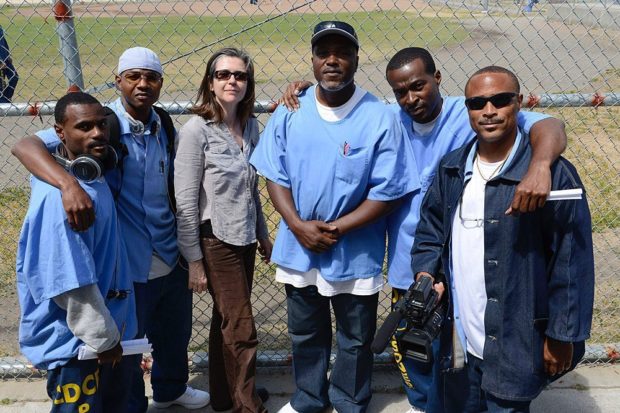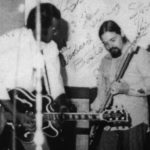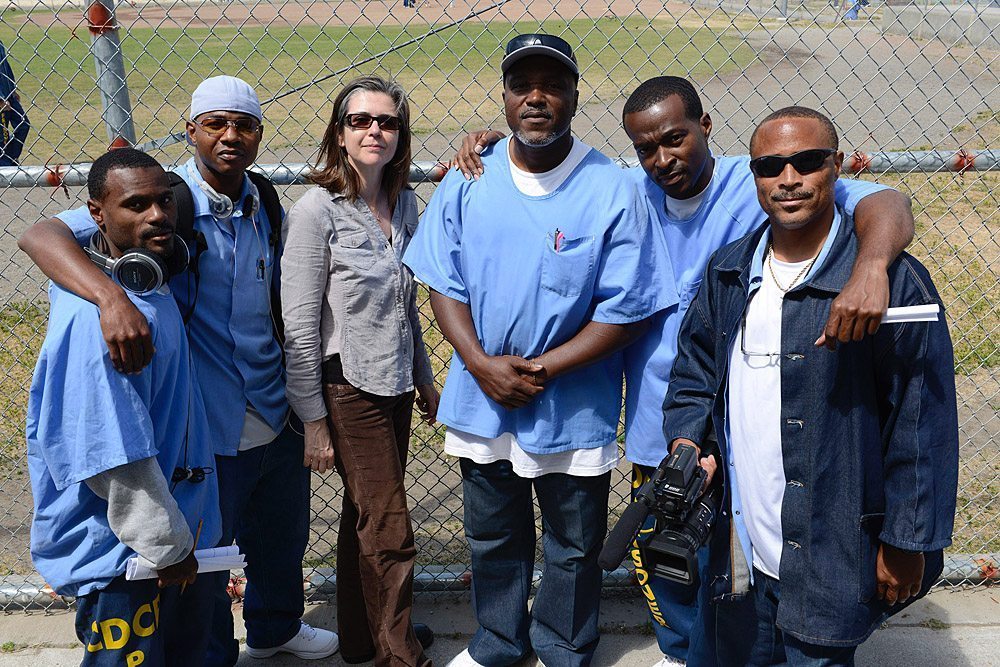

By Boston Woodard
“True public safety will be achieved by freeing minds, not restricting bodies.”
—Troy Williams
Prison walls work both ways; they not only keep prisoners from society but also prevent the public from knowing what happens on the other side of the wall. Media access into the prison system has long served the public for decades. That access was limited in the 1990s under the reign of Governor Pete Wilson and perpetuated by every California governor since him. Some citizens felt prisoners should have access to the media. Others felt prisoners used the media to become celebrities or big wheels, an allegation never proved.
Today, media access into the prison system has loosened a bit. Some institutions allow outside media to attend and report on various groups or events. Prisoners are allowed to correspond with outside reporters regarding events inside the walls.
It is legal for prisoners to write stories and essays for outside publications if they choose to do so. There are also some unique and viable means of communications coming out from behind prison walls that many are beginning to take seriously as a legitimate news source.
One of those means of communication reporting from the inside out is the San Quentin Prison Report (SQPR), which is a legitimate and important source of news and information written and produced by prisoners at San Quentin State Prison.
The SQPR is a media collective of 12–15 prisoners and volunteers from the community working together creating audio and video programs that broaden and challenge the conversation surrounding crime, punishment, rehabilitation and the criminal justice system in the United States. The SQPR is equipped to handle video, radio and music recordings at a professional level.

Troy Williams, founder, architect and CEO of the SQPR, was one of several prisoners selected to participate in the San Quentin Film School produced by Radical Media and the Discovery Channel. Williams wrote, produced and directed a movie short titled Absence about the effect caused on a child whose father was absent in her life.
“I don’t know of any prison in the country that has a significant, life-changing opportunity in the technical world such as the SQ Prison Report,” said Williams. “We not only have the opportunity to hone skills that can benefit the community when we parole, but we are building careers in the process.”
According to Williams, “some of our guys were involved in the recording business before their incarceration and are adept in this field.” Other SQPR staff have just come on board and are in training using the Pro Tools software program. Video, radio and music programs are developed and edited by the SQPR staff.
David “Jas” Jassy, the SQPR’s music director, has been in the music business since 1986, signing his first recording deal in his native country of Sweden in 1992. Jassy has done work for Sony, EMI and Universal. When asked about his position, Jassy said, “Troy Williams is as good of a leader as I’ve seen anywhere. His ability to run this operation, as professionally as he does, is admirable.”
Jassy also said he appreciated the opportunity to work with and receive personal instruction from Mark Jeffery, co-creator of Pro Tools. “It’s an honor to be able to continue my skills in the recording business with SQPR. It will help me to keep abreast of the technology and development in the field I love. Staying professionally active means everything to me,” said Jassy.
Williams eventually met Sacramento State University Professor Nigel Poor while she was teaching a class with the Patten University Project. Together, Williams and Poor began a project they called Verbal Photography, which they say is turning an experience into a verbal picture/description of the event.
“[The] SQPR has become an important part of my life,” said Poor. “I believe the work we are doing together is changing lives. I know it has changed mine.” What Poor said she loves most about the project is “that it allows people to connect and to understand that each of us has the power to change our perspective and that change begins simply by being interested and asking questions.”
“The San Quentin Prison Report would not have a program without the support and contributions of Nigel Poor,” said Williams. “Professor Poor is our liaison to the prison’s administration and KALW radio. She ensures that all of our projects are ready and in order to present to San Quentin’s warden [Kevin] Chappell and KALW’s news director Holly Kernan.”
Poor contacted San Francisco Bay Area radio station KALW 91.7 FM news director Kernan, who would eventually invest time and financial support to train the SQPR production team in radio journalism. The San Quentin Prison Report airs on KALW’s show called Cross Currents.
“The time and assistance given to us by Holly is immeasurable,” said Williams. “Her effort has given the San Quentin Prison Report a measure of legitimacy. It has given us the opportunity to expand our efforts beyond the walls of prison. Our stories include more profiling, interviews and pertinent information about crime and punishment within the prison system.”
An incredible news feature by the SQPR on KALW was by Tommy “Shakur” Ross, whose story was about a prisoner who had a victim/offender dialog with the sister of the man he murdered 23 years ago during a restorative justice symposium he sat in.
“That story was powerful and compelling. It gave me a clear window of the impact of crime and the effects it has on victims,” said Shakur. According to Shakur, “She said it was the most powerful experience she ever had in her life. She forgave the man who killed her brother, they embraced, unbelievable.”
Over the past year, the SQPR has worked in San Quentin Television producing more than 100 hours of video programming for education commencements, religious services, self-help groups, institutional events and inmate leisure time activity groups.
When asked what it was like to work in such a technical arena as TV and radio broadcasting, Williams said, “The men involved in our program are professionals in my eyes. They take their involvement with the SQ Prison Report serious and are always open to learn more. The SQ Prison Report staff are open to new ideas and suggestions. I love going to work every day; it’s like I get to leave prison every day.”
Williams’ movie short Absence aired on the Discovery Channel in February 2009 as part of the larger six-part series entitled San Quentin Film School (SQFS). After the Discovery Channel finished with its production of SQFS, the video equipment for the program was left behind. Williams was later hired by San Quentin Television, which runs the prison’s closed-circuit television system.
This past May, Williams directed a two-camera film crew in San Quentin’s North Block on a story about the Inmate Disability Assistant Program (IDAP). Prisoners assigned to the IDAP program are on call 24/7, helping prisoners who fall under the federal Americans with Disability Act. IDAP workers help mobility, visually and hearing-impaired prisoners get to medical appointments and deliver their meals if necessary.
IDAP assistant Allan Ross told the SQPR that he loves what he does. It’s his way of giving back. “I’ve always been distrusting,” said Ross. “This is my time to do something good that I truly enjoy doing. It’s also an opportunity for us to express our concern for our fellow prisoners, even across racial lines, which can sometimes be a sticky issue in prison,” explained Ross.
According to Professor Poor, “Working with Troy [Williams] and the other men from [the] SQPR is an amazing privilege. We are an eclectic group with different life experiences, passions and talents and to my estimation have come together and created a cohesive group whose goal is to open forms of communication to help broaden the conversation about crime, punishment and rehabilitation in America.”
The SQPR is looking for community partners including journalists, media specialists, producers, filmmakers, distributors, crew members and editors—community members willing to help our creative cause. For more information on volunteering your professional services to the San Quentin Prison Report, visit www.sqpr.org.
All SQPR productions are inmate facilitated and volunteer supported. “Our goal is to build a bridge that links our videos, documentaries, films, radio programs and music to promote positive social changes in a global society,” said Williams. “We hope to become San Quentin’s version of 20/20,” he said with a smile.
Those men (and women) who make the San Quentin News Report and Cross Currents happen are Brian Asey, Curtis “Wall Street” Carroll, Greg Estridge, Davis “Jas” Jassy, Jason Jones, Malik Laramore, Harold Meeks, Tommy “Shakur” Ross, Earlonne, Shadeed Wallace-Stepter, Andress Yancey, Holly Kernan, Nigel Poor, Troy Williams and Boston Woodard.
For more information about the SQPR and/or Williams, visit www.sqpr.org or contact troywilliamsk67708@gmail.com.
*****
Boston Woodard is a prisoner/journalist. He writes for the Community Alliance and the San Quentin News, has written for the Soledad Star and edited The Communicator. Boston is the author of Inside the Broken California Prison System, which is available at www.amazon.com. Learn more at www.brokencaliforniaprison.com. Contact him at Boston Woodard, B-88207, 2-N-1O1, S.Q.S.P., San Quentin, CA 94974.
